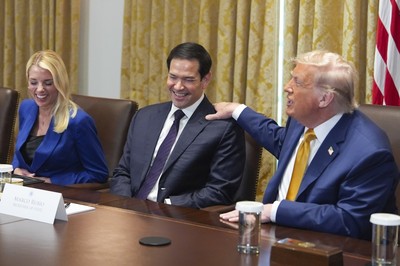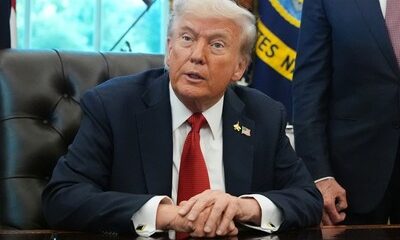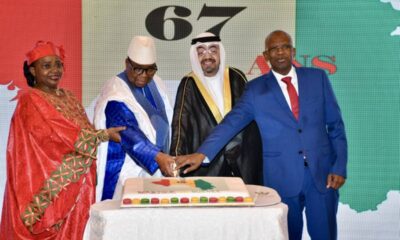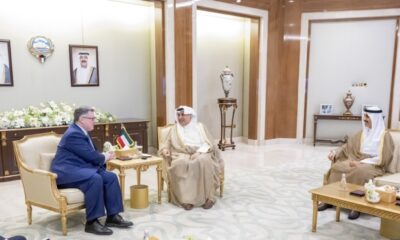US President Donald Trump, right, puts his hand on shoulder of Secretary of State Marco Rubio, center, as Attorney General Pam Bondi, left, looks on during a cabinet meeting at the White House on July 8, in Washington. (AP)
WASHINGTON, July 9, (AP): Sweeping tariffs set to be imposed by President Donald Trump next month may cast a pall over his top diplomat’s first official trip to Asia this week – just as the US seeks to boost relations with Indo-Pacific nations to counter China’s growing influence in the region. Trump on Monday sent notice to several countries about higher tariffs if they don’t make trade deals with the US, including to a number of Asian countries.
The move came just a day before Secretary of State Marco Rubio planned to depart for a Southeast Asian regional security conference in Malaysia. Top diplomats and senior officials from at least eight countries that Trump has targeted for the new tariffs, which would go into effect on Aug. 1, will be represented at the annual Association of Southeast Asian Nations Regional Forum in Kuala Lumpur that Rubio will attend on Thursday and Friday.
State Department officials say tariffs and trade will not be Rubio’s focus during the meetings, which the Trump administration hopes will prioritize maritime safety and security in the South China Sea, where China has become increasingly aggressive toward its small neighbors, as well as combating transnational crime.
However, Rubio may be hard-pressed to avoid the tariff issue that has vexed some of America’s closest allies and partners in Asia, including Japan and South Korea, which Trump says would face 25% tariffs absent a deal. Neither of those countries is a member of ASEAN but both will be represented at the meetings in Kuala Lumpur. Rubio’s “talking points on the China threat will not resonate with officials whose industries are being battered by 30-40% tariffs,” said Danny Russel, vice president of the Asia Society Policy Institute and a former assistant secretary of state for East Asia and the Pacific during the Obama administration.
“In fact, when Malaysian Prime Minister Anwar Ibrahim last week said ASEAN will approach challenges ‘as a united bloc’ – he wasn’t talking about Chinese coercion, but about U.S. tariffs,” Russel said. Among ASEAN states, Trump has so far announced up to 40% tariffs on at least six of the 10 members of the bloc, including the meeting host Malaysia, which would face a 25% tariff mainly on electronics and electrical product imports to the United States.

 Politics23 hours ago
Politics23 hours ago
 Latest News24 hours ago
Latest News24 hours ago
 Latest News22 hours ago
Latest News22 hours ago
 Politics14 hours ago
Politics14 hours ago
 Politics13 hours ago
Politics13 hours ago
 Politics11 hours ago
Politics11 hours ago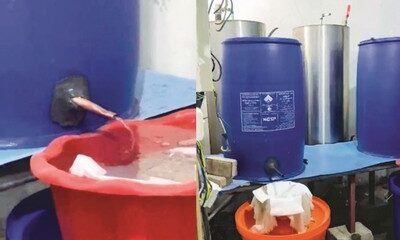
 Politics9 hours ago
Politics9 hours ago
 Business14 hours ago
Business14 hours ago
